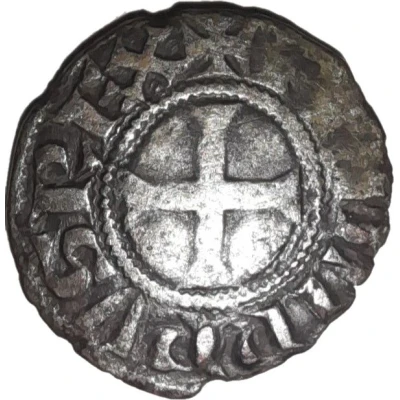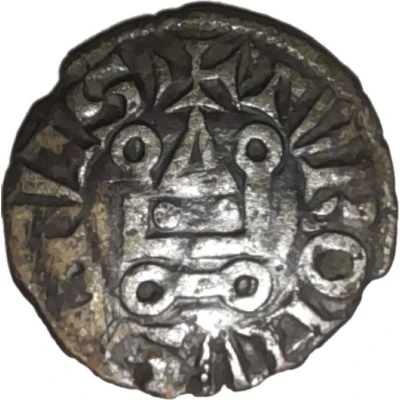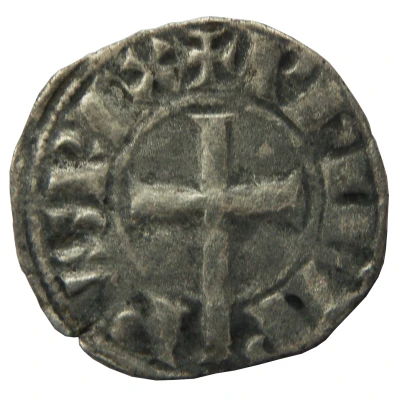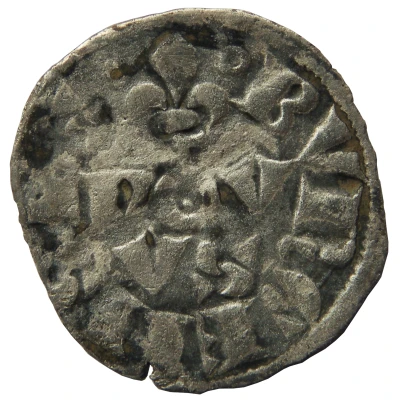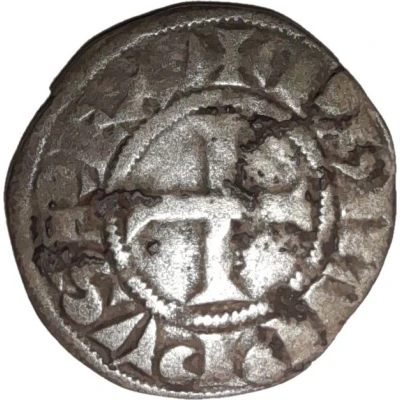
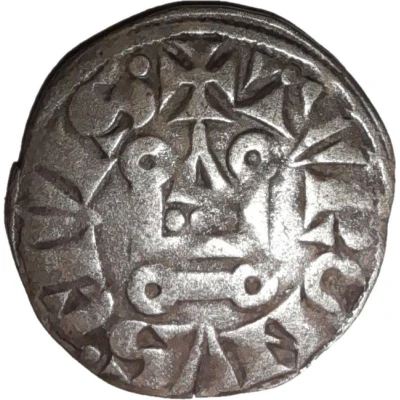

© pimmy (CC BY-NC-SA)
Denier Tournois - Philippe IV ND
| Billon (.229 silver) | 1.127 g | 19 mm |
| Issuer | France |
|---|---|
| King | Philip IV (Philippe IV) (1285-1314) |
| Type | Standard circulation coin |
| Years | 1290-1295 |
| Value | 1 Denier (1⁄240 LT) |
| Currency | Livre tournois (1204-1795) |
| Composition | Billon (.229 silver) |
| Weight | 1.127 g |
| Diameter | 19 mm |
| Shape | Round (irregular) |
| Technique | Hammered |
| Orientation | Variable alignment ↺ |
| Demonetized | Yes |
| Updated | 2024-10-04 |
| Numista | N#56725 |
|---|---|
| Rarity index | 79% |
Reverse
Chatel Tournois. The O of TVRONVS is long.
Script: Latin
Lettering: ✠ TVRONVS CIVIS
Translation: City of Tours.
Edge
Plain
Comment
"The coins with the legend + PHILIPVS REX (with a single P) are all from Philip III, but if those with + PHILIPPVS REX with two P are given to Philip IV, it is clear that the change in the spelling of the royal name did not coincide with the change of king. The study of the Belgian treasure of Grand-Halleux, buried between 1280 and 1282 and which contained 3 deniers tournois with PHILIPVS REX and 9 with PHILIPPVS REX proves that this change took place around 1280 or a little earlier."
J. DUPLESSY (extract from "les monnaies françaises royales", tome I 1988)
Interesting fact
One interesting fact about the Denier Tournois - Philippe IV ND (1290-1295) coin from France is that it was minted during a time of significant economic and political change in Europe. The coin was issued during the reign of King Philip IV, also known as Philip the Fair, who ruled France from 1285 to 1314. During his reign, Philip IV introduced a number of economic reforms, including the creation of a new currency system, which replaced the denier as the standard unit of currency with the livre tournois. This coin, which was minted in the city of Tours, was part of this new currency system and features an image of the king on one side and a cross on the other. Despite its small size and relatively low value, the coin is a fascinating piece of history that provides insight into the economic and political developments of medieval Europe.
